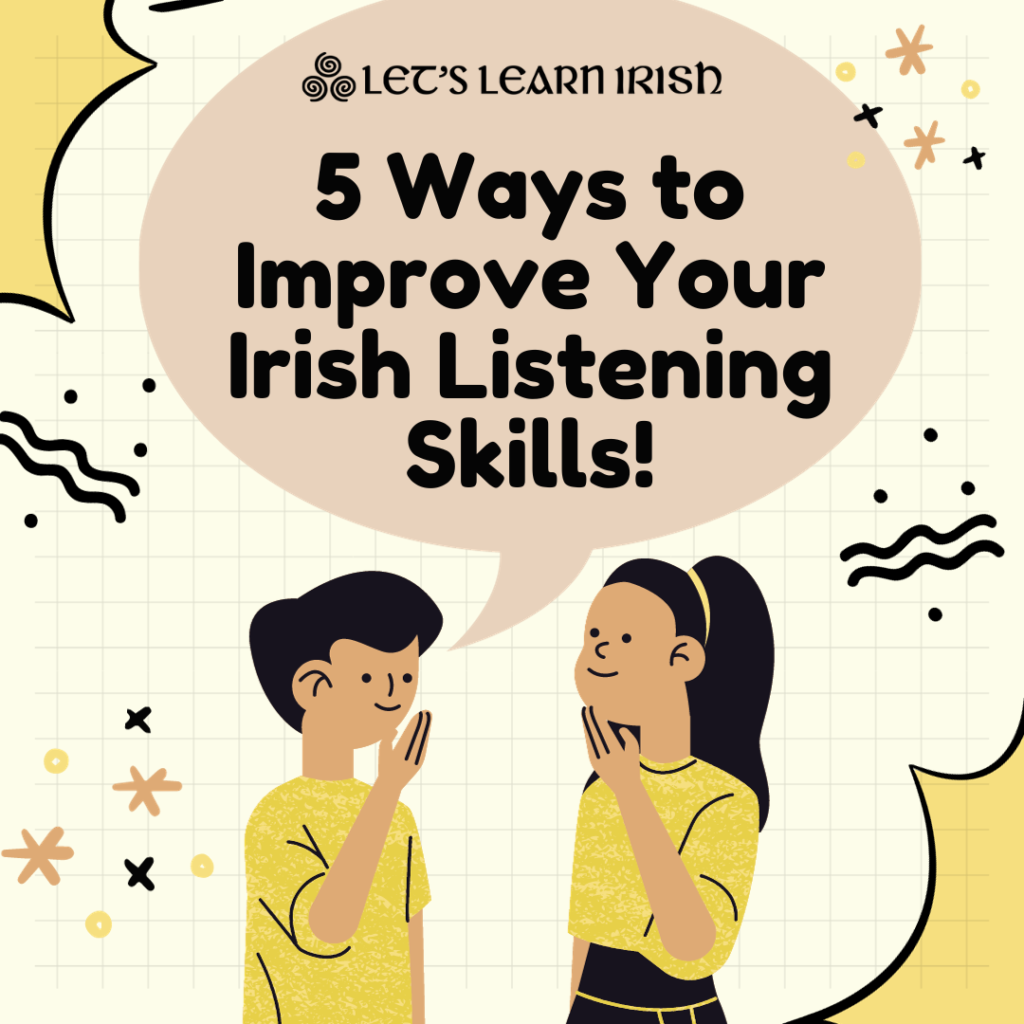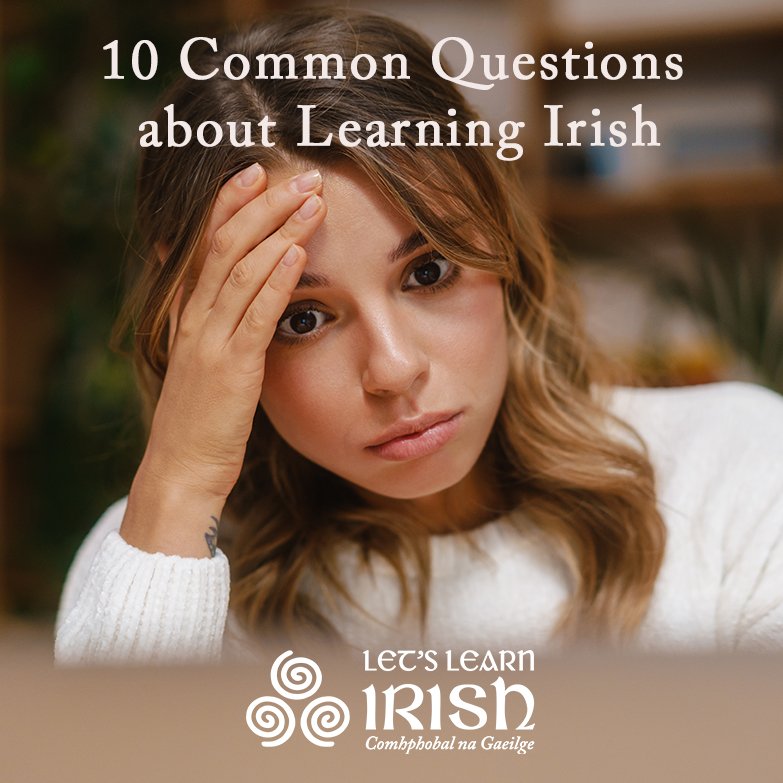Who Wants to Learn a Dead Language Anyway?

Following on from his first article, An Liúdrámán i Londain, Bart returns with more musings on his Irish language journey…
In my spare time I frequent some of the linguistic and language learning pages on the ever-frothing fountain of knowledge that is Facebook, and this is precisely what I was doing the other day when a certain comment stopped me in my tracks. It was a remark made by a person I happen to know from some of my language groups, who was bemoaning the amount of Gaeltachtaí in Dublin, where he lives, as a way of explaining the uselessness of learning the language.
For those who don’t know, a Gaeltacht is a place where Irish is spoken, normally as a first language. There has been some success with artificial Gaeltachtaí (mostly in Leinster, as this is the region without a natural Gaeltacht as opposed to Munster, Ulster and Connaught). This is also where the ‘Pop Up Gaeltacht’ gets its name.

The comment irked me, and naturally, being the agent of internet justice that procrastination occasionally deludes me into thinking I am, I responded. Despite the years of Irish grammar hardship burning in my mind, I gave a detailed and clear analysis of how I gained the level of Irish I have done – for the curious among us, my comment went something like this:
‘I started with Rosetta Stone complemented with Duolingo – once I had a better level of the basics and the grammatical functions, I moved onto evening classes so I could practise speaking, listening and all those things that you need to have modelled by a native or high level speaker in order to achieve a good level of proficiency’
This, however, was not what my fellow internet inhabitant wanted – instead of reacting negatively, I had, against my deepest desires, given a clear and informative answer. His reply was quick, brutal and effective (at irritating me further).
‘What’s the point though? It’s not like you need Irish to get by here. I would pay for evening classes in French but I think ones in Irish should be free. It’s almost a dead language anyway.’
Such comments intrinsically misunderstand the reasons we learn languages and, while clearly designed with hyperbolic intents, deserve some picking apart. Why should it be that function overrides all other reasoning? This statement makes the assumption that the end goal of learning any language should be so that we can communicate with someone we otherwise couldn’t have – but does this not also apply to Irish?
 Living in London, it isn’t often I get the opportunity to speak Irish anymore, but it was only last week that in a small pub near my flat I heard a Dublin bhlás and turned around to their party ‘conas atá sibh a leaideanna?’ Instantly I was hit with roars of excitement. ‘Tá Gaeilge aige! Maith an fear!’ I stood at the bar with someone chatting happily in Irish for a good while. ‘Feir plé duit le Gaeilge a fhoglaim! Sin dochcréidte!’ It was a moment of joy and connection – a pleasure for me to speak Irish again and a happy surprise for the party to meet someone speaking to them in their language in a foreign land.
Living in London, it isn’t often I get the opportunity to speak Irish anymore, but it was only last week that in a small pub near my flat I heard a Dublin bhlás and turned around to their party ‘conas atá sibh a leaideanna?’ Instantly I was hit with roars of excitement. ‘Tá Gaeilge aige! Maith an fear!’ I stood at the bar with someone chatting happily in Irish for a good while. ‘Feir plé duit le Gaeilge a fhoglaim! Sin dochcréidte!’ It was a moment of joy and connection – a pleasure for me to speak Irish again and a happy surprise for the party to meet someone speaking to them in their language in a foreign land.
 And isn’t that what language is about? Connecting with people, whether through poetry or stories, whether via an everyday chat or an academic paper, whether living or dead – because that is the miraculous power of language: to traverse even the boundaries of life and death. Within language we see the fossilised thoughts of those who came before us, and through them, we can connect with those at rest as readily as if they were still here.
And isn’t that what language is about? Connecting with people, whether through poetry or stories, whether via an everyday chat or an academic paper, whether living or dead – because that is the miraculous power of language: to traverse even the boundaries of life and death. Within language we see the fossilised thoughts of those who came before us, and through them, we can connect with those at rest as readily as if they were still here.
Language is a blessing – because although we are all different, with language we can begin to understand in what ways we are different, and how those differences shape our realities. Without learning Irish I never would have thought of ‘wearing’ your emotions upon you – which, if you think about it, makes a lot more sense. We are not our hunger, our anger, our sadness; these emotions are just jackets that we wear for a period of time before moving on. They are transient. Níl mé feargach, ach tá fearg orm – I am not angry, the anger is upon me.
 Without learning Irish I wouldn’t have enjoyed a quiet moment of peculiar pleasure at the thought of a ladybird or ladybug being a bóín Dé (God’s little cow). So forget your boulangerie orders, your coiffure is fine – because yes, Irish people can already speak English and you could already speak to them – but could you really connect with them? And why not study a language that you love instead of one you find useful? We all start as amateurs, but as the Italian origin of that word shows (from amare – to love), there is beauty in doing something for love over practicality. Irish is not dead – she’s not even asleep, she’s just resting her eyes – and it’s about time we started giving her a reason to get back on her feet.
Without learning Irish I wouldn’t have enjoyed a quiet moment of peculiar pleasure at the thought of a ladybird or ladybug being a bóín Dé (God’s little cow). So forget your boulangerie orders, your coiffure is fine – because yes, Irish people can already speak English and you could already speak to them – but could you really connect with them? And why not study a language that you love instead of one you find useful? We all start as amateurs, but as the Italian origin of that word shows (from amare – to love), there is beauty in doing something for love over practicality. Irish is not dead – she’s not even asleep, she’s just resting her eyes – and it’s about time we started giving her a reason to get back on her feet.
Join the online Irish community for cúrsaí, comhrá & ceardlanna, and follow along on social media @LetsLearnIrish – beidh fáilte romhat!





